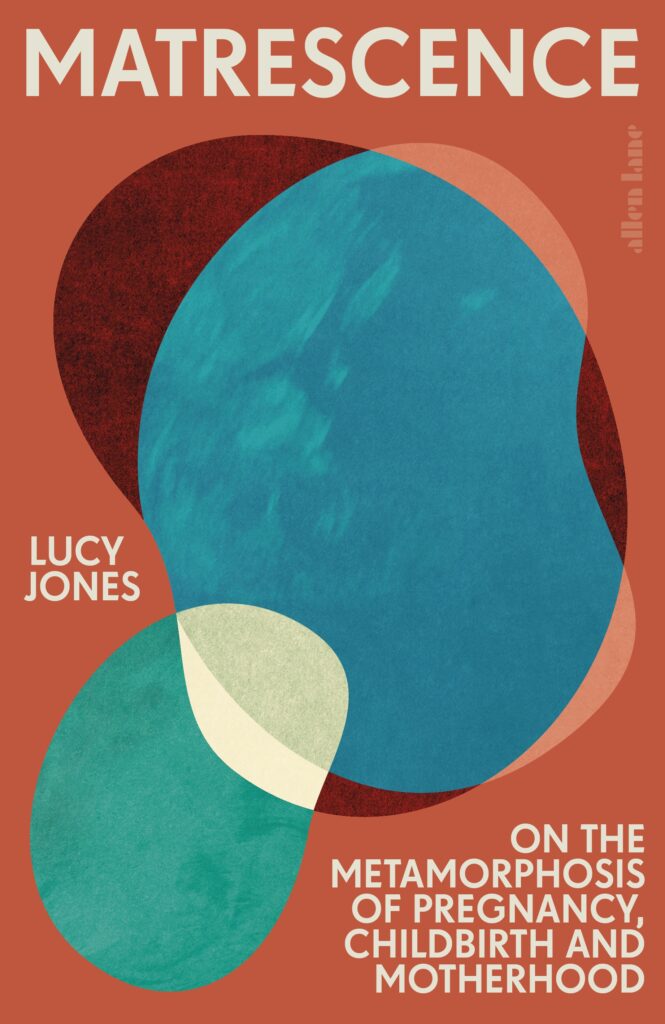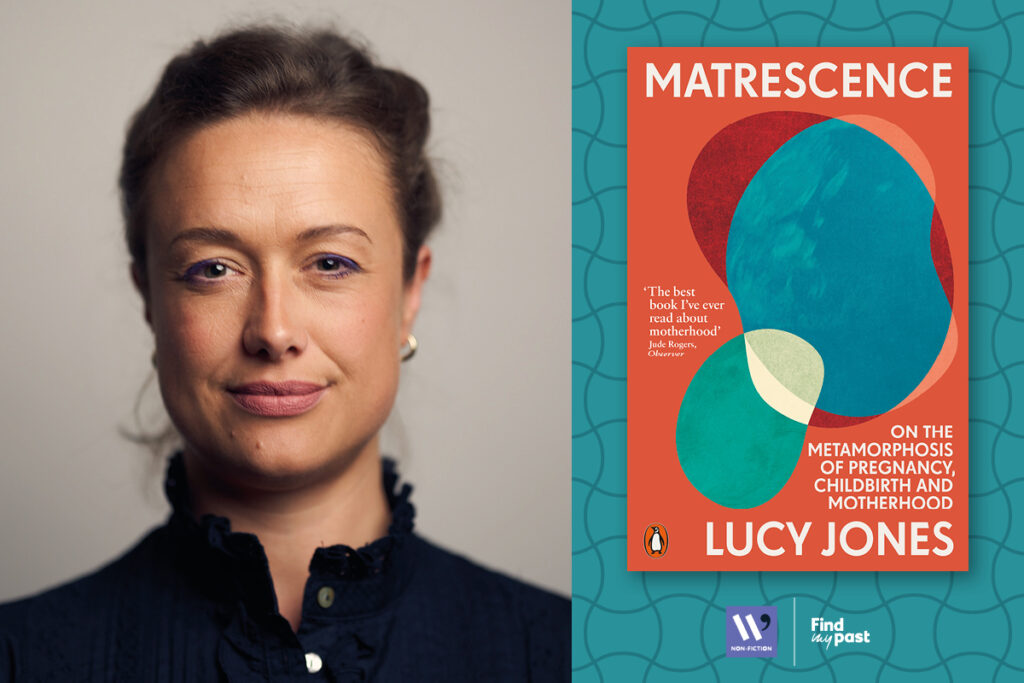Matrescence: On the Metamorphosis of Pregnancy, Childbirth and Motherhood by Lucy Jones is an urgent examination of the modern institution of motherhood, which seeks to unshackle all parents from oppressive social norms, deepening our understanding of matrescence.
Longlisted for the 2024 Women’s Prize for Non-Fiction, judge Venetia La Manna said ‘A must-read for everybody. A pioneering, enthralling book that will shift how we view motherhood.’
To find out more about the book we spoke to Lucy about her writing, research and current reads.

Describe your book in one sentence as if you were telling a friend.
Matrescence is about the total head-f*** of becoming a mother and it’s also about metamorphosis, power, old lies, symbiosis, interdependence, pain, fear, economics, justice, vulnerability, value, ecology, time, chaos, wonder, creativity, selfhood, social possibility and love.
Did you have any revelation moments when writing your book? When the narrative and your objectives all fell into place?
Evolutionary history and anthropology shows us that the way women are mothering today – alone, indoors, nuclear rather than collective, and under extraordinarily oppressive maternal ideals – is new and unusual and not at all as “natural” as it is presented to be.
This learning deepened my understanding that motherhood – pregnancy, birth and early motherhood, in particular – was a social institution, that its expectations and conditions have always been invented and reinvented by societies, and that women are becoming mothers today at an extraordinary time of coalescing social, historical and economic factors (women working outside the home; attachment theory and a cherry-picking of Bowlby’s ideas; a housing and cost of living crisis; inequality and health disparities; a disavowal of care work and the rise of hyper-individualism and consumerism).
The extent of the biological impact of pregnancy, birth and early infant care-giving on mothers, and also on fathers and non-birthing parents, was beyond anything I’d imagined. I had no idea before researching Matrescence that the in pregnancy the maternal brain literally changes shape and alters in multiple areas. Nor that the cells of the child remain in the maternal body, for reasons scientists are still trying to figure out. Connected to this: that the parental and care-giver brain can of course change too, particularly with hands-on care, for we all evolved in collective child-rearing networks and we all have the necessary neural circuitry to care for young children.
What is the one thing you’d like a reader to take away from reading your book?
We are interconnected and interdependent and entangled and often vulnerable far more than our current systems claim or allow for.
Which other female non-fiction writers inspire you and why? Any particular title?
Reading Adrienne Rich’s Of Woman Born: Motherhood as Experience and Institution was a major moment for me, personally and intellectually. I found her distinction between the experience of raising children and the social institution of motherhood, with its structures and strictures, so liberating and it gave me permission to break the “feeling rules” and interrogate my experience of modern motherhood. So many more: Rachel Cusk, Camille T. Dungy, Arlie Hochschild, Liz Berry, Silvia Federici, Elena Ferrante, Nancy Folbre, bell hooks, Sarah Blaffer Hrdy, Robin Wall Kimmerer, Alice Notley, Sara Ruddick, Shari L. Thurer, Maggie Nelson, Eula Biss, Amy Liptrot, Annie Dillard. I could go on.
What is the best piece of writing advice you have ever received?
Focus on the process and not the result.
What book is currently on your nightstand?
Checkout 19 by Claire-Louise Bennett. GENIUS.








